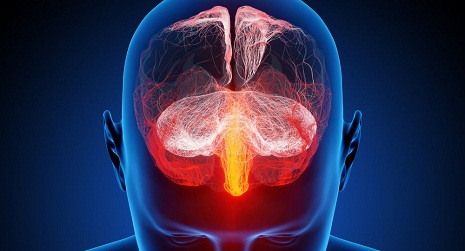They also asked the participants to complete a problem-solving task (a simple memory problem involving a little math) to stimulate activity in their brains’ executive control center--the seat of problem-solving--the dorsolateral prefrontal cortex (DPC).
Brain imaging showed that the highest threat and lowest reward responses predicted high levels of anxiety in participants who had low or average DPC activity, but not in participants with high DPC activity. In other words, stimulating the problem-solving center of at-risk individuals’ brains seemed to protect them from the worst effects of anxiety. A follow-up evaluation and brain scan of the study participants seven months later confirmed the initial findings.
"These findings help reinforce a strategy whereby individuals may be able to improve their emotional functioning--their mood, their anxiety, their experience of depression--not only by directly addressing those phenomena but also by indirectly improving their general cognitive functioning," said study co-author Ahmad Hariri, professor of psychology and neuroscience at Duke.
Though the results are promising, a couple of caveats are worth noting. The most important is a matter of interpretation: the study could be interpreted to show that pre-existing wiring of certain brains provides this in-built anxiety protection, while other brains simply lack it. If that’s the case, then it wouldn’t be accurate to say that problem-solving is an effective buffer against anxiety for anyone with the condition, but only those with brains fortunate enough to be wired that way.
On the other hand, it’s also possible that the effect is a matter of degree. Perhaps some brains are wired a bit more, fortunately, but maybe it just takes a little more problem-solving stimulation in other brains to catalyze the same protective effect.
Those questions remain open, at least for now. In the shorter term, the results point to new directions in anxiety research and give anxiety sufferers a worthwhile reason to stay busy.
The original article was published in Forbes.
More about: #science
















































